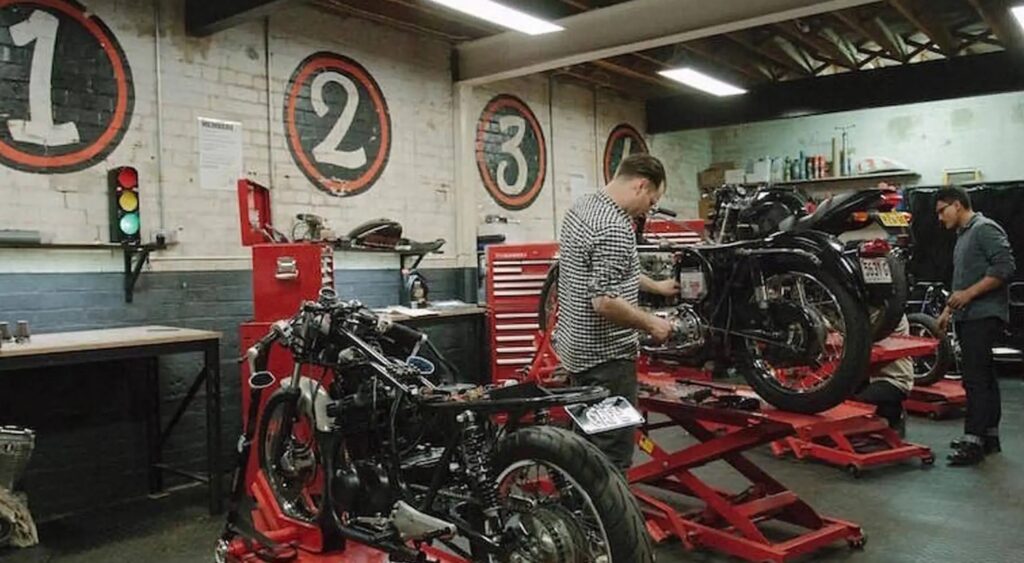The thrill of riding a motorcycle is unmatched by any other form of transportation. The wind rushing by, the engine’s roar, and the sense of freedom on an open road create an exhilarating experience for any rider. However, owning a motorcycle also comes with the responsibility of regular maintenance and repairs. Whether you are an experienced rider or a novice just getting into the biking world, learning the basics of motorcycle mechanics can save you time, money, and improve your overall riding experience. Plus, having the ability to replace parts yourself ensures that you can keep your motorcycle in top condition without always relying on professional mechanics.
Why Embrace DIY Motorcycle Mechanics?
Understanding the mechanics of your motorcycle offers numerous advantages. It empowers you to handle minor repairs and maintenance tasks without waiting on a shop’s schedule. This knowledge also allows you to build a stronger connection with your machine, giving you confidence on the road. Whether you’re changing the oil, replacing brake pads, or installing a new exhaust system, each task is an opportunity to refine your skills and enhance your expertise in motorcycle mechanics and parts.
The Essentials for Starting Your Motorcycle Mechanic Journey
Before diving into hands-on bike repairs, it’s essential to have a basic set of tools and a proper workspace. A well-equipped tool kit should include socket wrenches, screwdrivers, pliers, a torque wrench, and other essentials specific to your motorcycle’s make and model. Moreover, creating a clean, organized, and well-lit space will make the mechanic work more comfortable and efficient. Alongside tools, investing in a good manual for your motorcycle is crucial. These manuals provide detailed instructions and diagrams to guide you through various maintenance and repair procedures.
Key Motorcycle Parts to Know
Familiarity with critical motorcycle parts can significantly ease your DIY projects. Some of the fundamental components include:
- Engine: The heart of your motorcycle that powers the ride.
- Transmission: Manages the power from the engine to the wheels, facilitating smooth rides and controlling speed.
- Brakes: Ensures safety by enabling riders to slow down or stop as needed.
- Suspension: Provides comfort and stability by absorbing shocks from the road.
- Tires: The point of contact with the road, crucial for handling and safety.
Learning the Basics of Regular Maintenance
To keep your motorcycle running smoothly, regular maintenance is essential. Start with simple tasks like checking tire pressure, lubricating the chain, and inspecting the brake fluid levels. Learning to change the oil is a foundational skill for any motorcycle enthusiast. Regular oil changes ensure the engine operates efficiently and reduces overall wear and tear. Similarly, periodic inspection and replacement of the air filter play a significant role in maintaining optimal performance.
The Importance of Using Quality Replacement Parts
When a part needs replacement, choosing the right replacement parts is crucial. High-quality parts ensure safety, reliability, and longevity. Opt for OEM (Original Equipment Manufacturer) parts whenever possible, as they guarantee compatibility with your motorcycle and often come with a warranty. If you prefer aftermarket parts for performance upgrades or cost-saving, make sure they meet the required standards and specifications.
Exploring Common DIY Repairs
Some repairs are straightforward and perfect for beginners. For instance, replacing worn-out brake pads can significantly improve your bike’s stopping power. Similarly, adjusting the clutch cable and throttle can enhance comfort and performance. Learning to adjust the motorcycle chain is another valuable skill, as a well-tensioned chain improves power transfer and reduces wear on related components.
Upgrading Your Motorcycle for Enhanced Performance
For those who have a passion for biking culture, upgrading your motorcycle can be incredibly rewarding. Performance-enhancing parts like aftermarket exhausts, improved suspension systems, or better brakes can transform your riding experience. Upgrading not only boosts performance but also adds a personal touch to your machine, reflecting your unique style and preferences.
Safety Considerations
While DIY motorcycle maintenance and mechanic work can be rewarding, safety should always be a priority. Ensure your workspace is organized and free from hazards. Always use the right tools for the job and wear protective gear, such as gloves and safety glasses, whenever necessary. When working with complex systems like the engine or electrical components, it’s essential to follow instructions closely and seek professional advice when unsure.
Resources for Aspiring Motorcycle Mechanics
Numerous resources can help you along your journey toward becoming proficient in motorcycle mechanics. Online forums, video tutorials, and community workshops offer valuable insights and tips from seasoned enthusiasts and professionals. Consider enrolling in a basic mechanic course if you’re eager to deepen your knowledge further.
Building a Community
DIY mechanics often find a sense of camaraderie within the motorcycle community. Enthusiasts frequently gather to share tips, tricks, and stories from their mechanical adventures. Engaging with this community not only provides support but also enhances the joy of learning and riding.
Conclusion
Embarking on the journey of DIY motorcycle mechanics is both challenging and rewarding. As you grow more skilled in troubleshooting and repairing, you’ll gain a deeper appreciation for your machine. Not only will you save money and extend the life of your motorcycle, but you’ll also enhance your riding experience with every mile. Dive into the world of motorcycle mechanics and parts, and embrace the satisfaction that comes with hands-on work. Whether you’re maintaining your current bike or customizing one to your unique specifications, the world of DIY motorcycle mechanics offers endless opportunities for learning and adventure. Commit to your craft, stay curious, and enjoy the ride.

